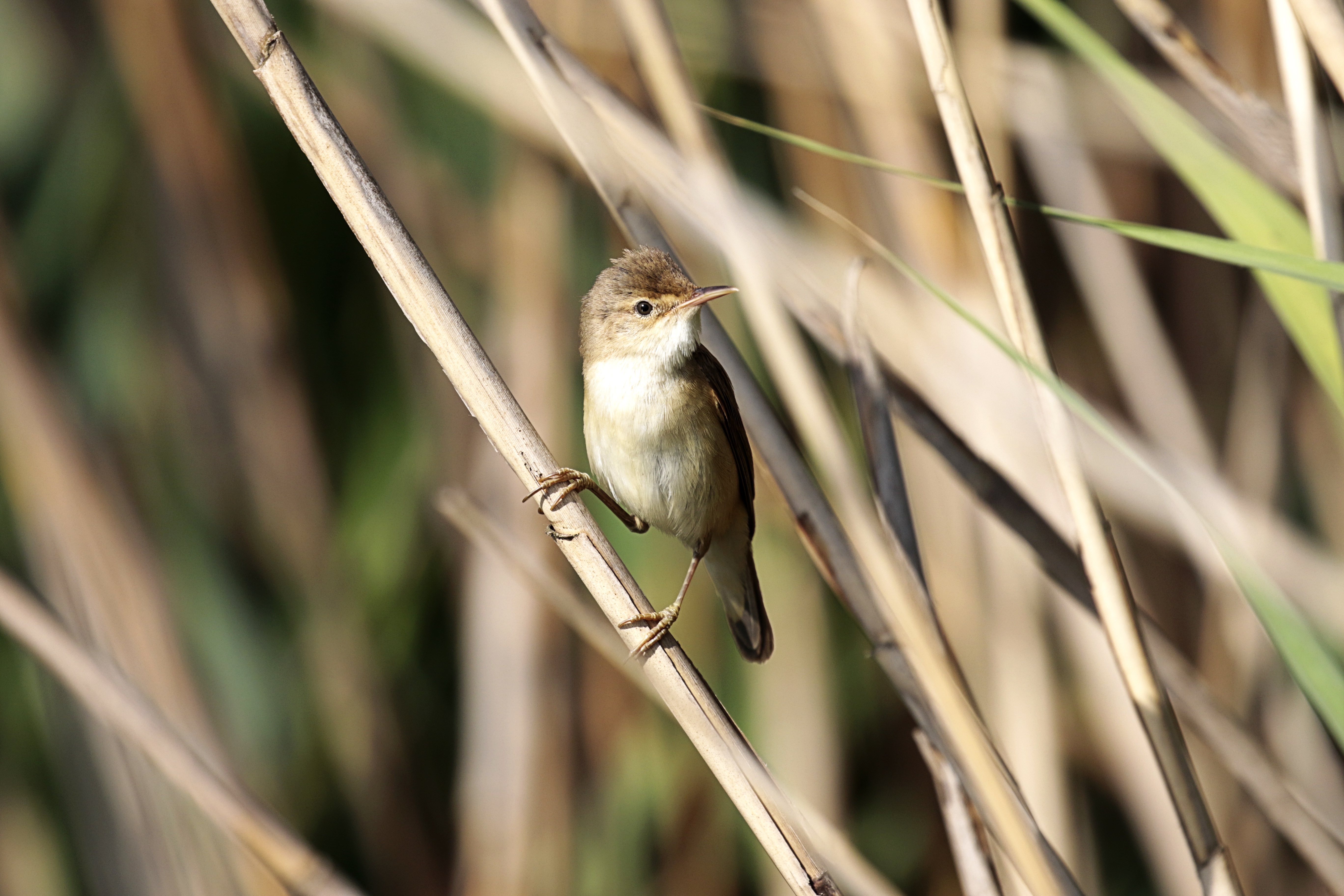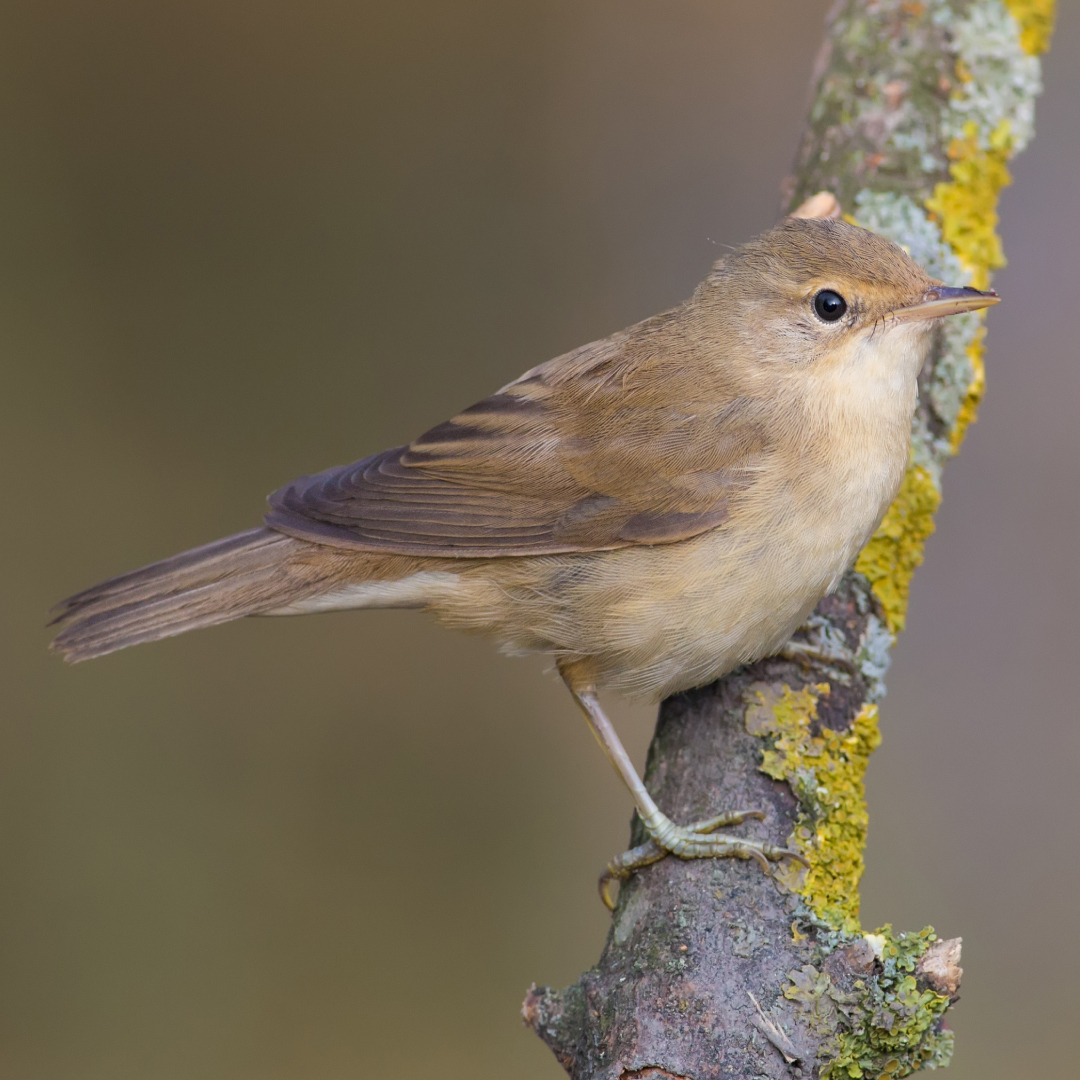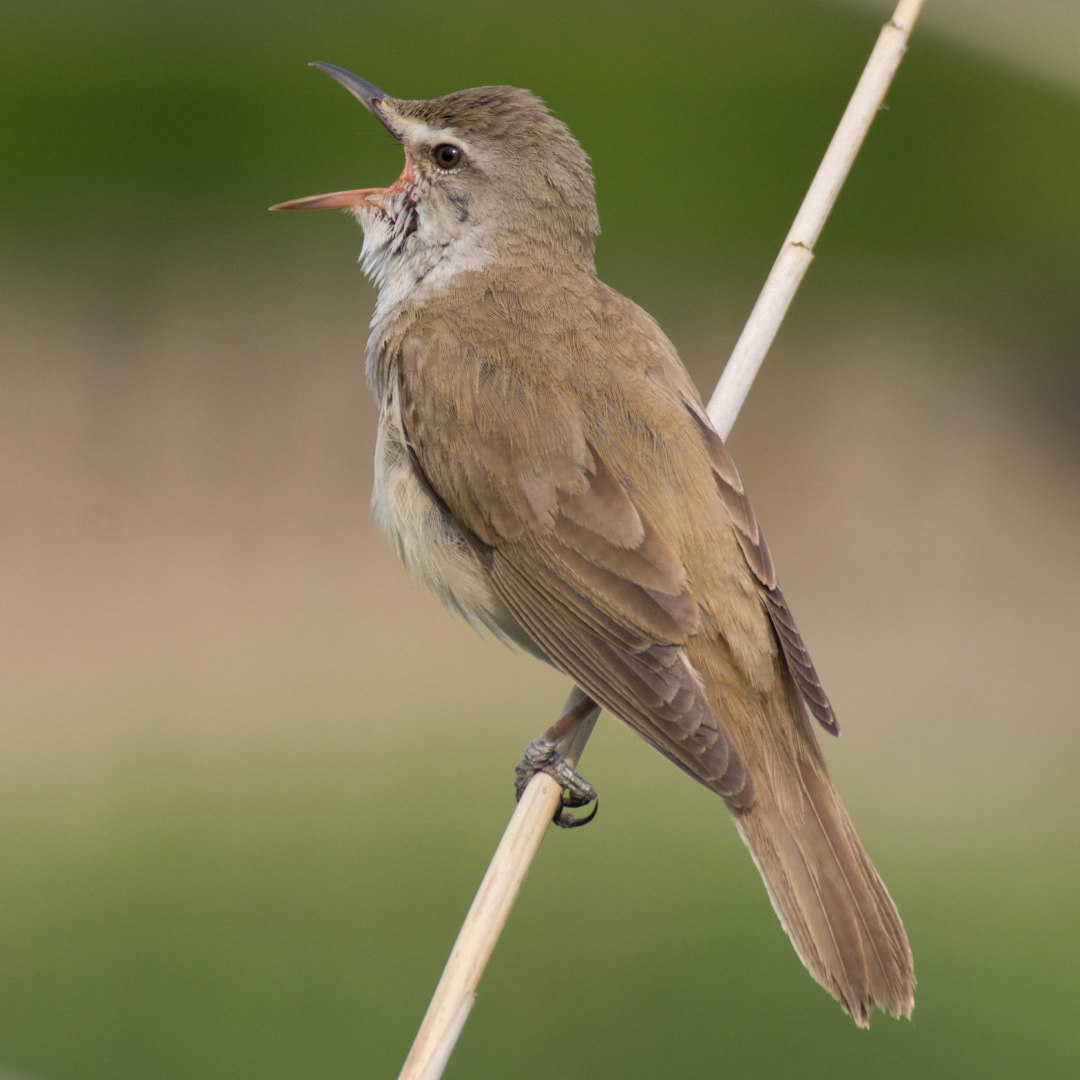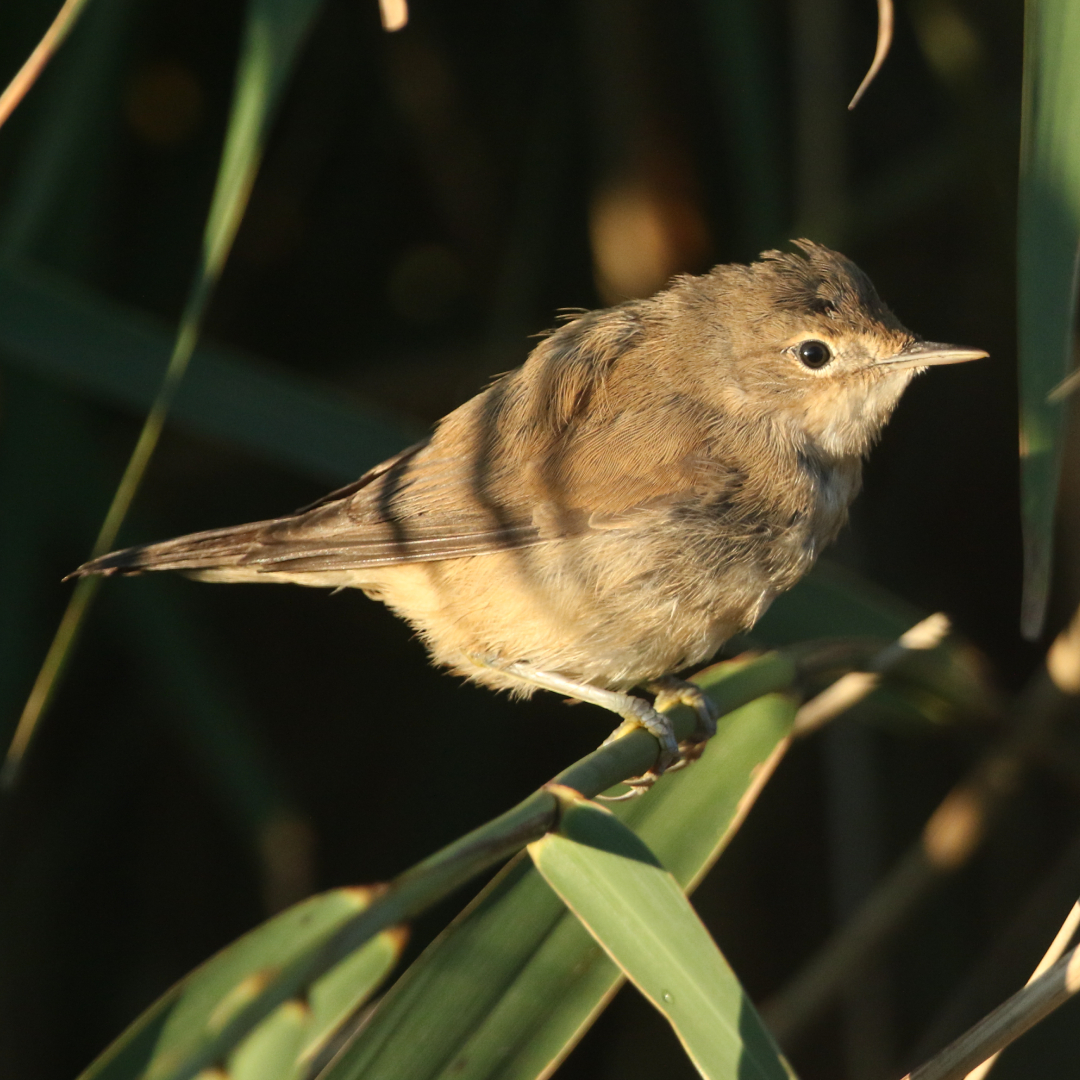
Alert Status:
Green
Population change:
45% increase (1995-2023)
Estimated number of breeding pairs: 130,000
Listen to reed warbler song:
Reed warblers are a non-descript warbler. They have warm brown upperparts and tails, with darker brown feathers on the wing. Their underparts are a buff/white colour with a clearly paler throat. The head is the same warm brown as the back with a pale white eye stripe and the bill is dark grey on top and a pale yellow below.
Average Length: 13 cm
Average Lifespan: 2 Years
Average Wingspan: 17-21 cm




Reed warblers mainly eat invertebrates such as spiders and snails but will supplement their diet in autumn with berries.
Most breeding populations are found in east England but recently populations have colonised Scotland and the island of Ireland. They begin breeding in May and form monogamous pairs. The female builds a deep cup-shaped nest woven from reed stems, lined with softer material and suspended on upright reeds and vegetation. Around 4 eggs are laid and incubated for 12 days by both parents. The hatchlings remain in the nest for another 11-12 days before fledging. Reed warblers are commonly parasitised by cuckoos which lay eggs in their nest. They will often produce two broods before the breeding season ends in July.
Reed warblers are doing well in the UK but in other areas, they have decreased due to the loss of reedbed habitats. Reedbed fires in the UK, such as Wirrel marshland and Dee estuary, could potentially drive decreases in their populations. Climate change has been shown to cause earlier breeding in reed warblers, which currently increases their productivity, but if their breeding season advances too far, they may breed before their chosen insect prey has come out for the spring. As with other migratory birds, climate-driven droughts in their winter grounds around Africa drive decreases in food and available habitat. Effective management of reedbed and wetland habitats has been shown to improve the survival of these populations.
Visit and donate to reedbed reserves such as Leighton moss and Tay reedbeds to help fund conservation actions for this species.
Be very careful not to disturb the fragile reedbed habitats when visiting, and do not light fires near these sites.
Petitioning local areas to protect wetland and reedbed habitats.
The reed warbler's scientific name is pretty descriptive with scirpaceus meaning ‘reed’ in Latin.
BirdLife International (2023) Species factsheet: Acrocephalus scirpaceus. Downloaded from http://datazone.birdlife.org/species/factsheet/common-reed-warbler-acrocephalus-scirpaceus. Accessed: 21/09/2023.
British trust for ornithology (no date) Reed warbler | BTO - British trust for ornithology. Available at: https://www.bto.org/understanding-birds/birdfacts/reed-warbler. Accessed: 21/09/2023.
Chernetsov, N., Pakhomov, A., Kobylkov, D., Kishkinev, D., Holland, R. A., & Mouritsen, H. (2017). Migratory Eurasian Reed Warblers Can Use Magnetic Declination to Solve the Longitude Problem. Current Biology, 27(17), 2647-2651.e2. https://doi.org/10.1016/j.cub.2017.07.024
Halupka, L., Dyrcz, A., & Borowiec, M. (2008). Climate change affects breeding of reed warblers Acrocephalus scirpaceus. Journal of Avian Biology, 39(1), 95–100. https://doi.org/10.1111/J.0908-8857.2008.04047.X
Lindholm, A. K., & Thomas, R. J. (1999). Differences between populations of reed warblers in defences against brood parasitism. Behaviour. 137(1):25-42.
Pearce-Higgins, J. W., & Crick, H. Q. P. (2019). One-third of English breeding bird species show evidence of population responses to climatic variables over 50 years. Bird Study, 66(2), 159–172. https://doi.org/10.1080/00063657.2019.1630360
RSPB (no date) Reed warbler bird facts: Acrocephalus scirpaceus, The RSPB. Available at: https://www.rspb.org.uk/birds-and-wildlife/wildlife-guides/bird-a-z/reed-warbler/. Accessed: 21/09/2023.
Thaxter, C. B., Redfern, C. P. F., & Bevan, R. M. (2006). Survival rates of adult Reed Warblers Acrocephalus scirpaceus at a northern and southern site in England. Ringing and Migration, 23(2), 65–79. https://doi.org/10.1080/03078698.2006.9674347
Woodward,I., Aebischer, N., Burnell, D., Eaton, M., Frost, T., Hall, C., Stroud, D.A.& Noble, D. (2020). Population estimates of birds in Great Britain and theUnited Kingdom. British Birds. 113: 69–104. https://britishbirds.co.uk